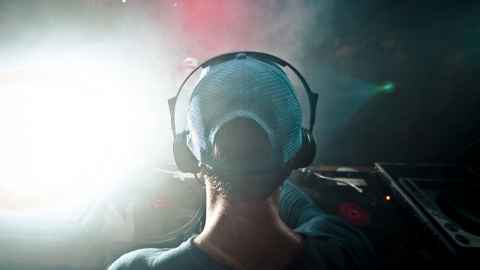Specialty Teaching Clinics
Learn more about our specialty teaching clinics, including vestibular testing, tinnitus testing, hearing protection, and hearing aids.

Hearing Aids
Most people with impaired hearing can benefit from wearing the right kind of hearing aid. Hearing aids come in all shapes and sizes, from behind-ear aids to in-ear aids with rechargeable options, remote controls and other accessories that can improve hearing the TV while wearing hearing aids.
Hearing aid discussions
If hearing loss is present, the choice of investing hearing aids as a solution to hearing loss is an important decision to make and involves a multitude of considerations. Whether you’ve new to the idea of wearing hearing aids or are an experienced hearing aid user, it is important to recognize and understand areas in your. You may have gradually avoided certain environments and social situations as your hearing loss worsened. discuss the various types of hearing aid styles, the latest technological advances, and what you can expect from your hearing aids. Together, you and the audiologist will decide which hearing aids are the most appropriate for your lifestyle, communication needs and budget.
Hearing aid reviews
If you are already a hearing aid user, it is recommended you have your hearing and your hearing aid(s) checked at least once a year to ensure your hearing aids are working to the best of their ability.
Hearing protection solutions
We offer hearing protection solutions designed to assist those who are exposed to high noise levels which can affect your hearing. This includes musicians, construction workers, those who shoot for work or recreation and more.
About 150,000 New Zealanders have some form of hearing loss attributed to exposure to loud noise.
The Department of Labour’s Occupational Safety and Health regulations allow for a maximum exposure to sound of 85 decibels over an eight-hour day without the use of hearing protection.
Sounds at 100–110 decibels can damage hearing after 15 minutes’ exposure.
Sounds at 110–120 decibels can damage hearing exposures after just 30 seconds.
The sound levels at musical concerts can peak at 110-120 decibels, which means that musicians run a very real risk of hearing loss.
Your hearing system may not give you any warnings. Some do experience temporary tinnitus or muffled hearing after performances. Both these symptoms indicate a musician’s hearing is at risk of permanent damage if the exposure to loud sounds continues.
Hearing protection for musicians
Wear musicians’ earplugs designed to protect hearing without adversely affecting how the musician hears music. Unlike conventional earplugs, musicians earplugs preserve sound quality, while at the same time reducing the level of exposure to sound. They can even be designed to reduce specific pitches.
After a loud concert or practice, avoid loud music or other loud sounds (from power tools, for example) for at least 16 hours. It is advised to have regular hearing tests.
Vestibular Teaching Clinic
If you experience vertigo or are dizzy, it may be because you have an inner ear disorder that can be evaluated with a full range of audiologic testing, vestibular testing and specialized electrophysiological testing.
Master of Audiology students are supervised in the Audiology Teaching Clinic by experienced vestibular professional teaching fellows and/or clinicians. The appointment consists of obtaining an extensive case history, performing specialized vestibular tests to assess the inner ear, counseling, analyzing test data, and making appropriate recommendations and referrals based on the results.
Tinnitus and Counselling
If you hear disturbing sounds inside your ear or head that aren’t coming from your surroundings, you may be experiencing tinnitus. Tinnitus is characterized by the perception of noise when no external sound is present. The sound sensations of tinnitus can vary widely among individuals, ranging from ringing, whistling, and humming to hissing and buzzing. Some individuals may even perceive more than one sound simultaneously.
The way tinnitus is experienced can differ significantly; while some people perceive the sounds as originating from their ears, others feel that the sounds occur inside their heads. Ongoing tinnitus often indicates damage to the hearing system, highlighting the importance of understanding and addressing this condition.
There are numerous potential causes and aggravators of tinnitus, including:
- Exposure to Loud Noises: Prolonged exposure to high decibel levels can damage hearing, resulting in tinnitus.
- Viruses: Certain viral infections may affect hearing and contribute to tinnitus symptoms.
- Medications: Some medications, especially ototoxic drugs, may induce or worsen tinnitus.
- Stress: Stress triggers various physiological responses, such as muscle tension, increased heart rate, and changes in blood flow. These physical changes can exacerbate tinnitus symptoms.
If you are concerned about your tinnitus or its impact on your quality of life, we encourage you to contact us. Please schedule an appointment so we can evaluate your symptoms and discuss effective management strategies. Don’t let tinnitus disrupt your life—let us help you find relief.
Service fees of Speciality Teaching Clinics
| Services | Prices |
|---|---|
| Hearing aid discussions (1.5 hours) | $70 (Free for DHB Referral) |
| Hearing aid review (2 hours) | $85 |
| Hearing protection | To be discussed at your appoinments as costs are determined by the product being used. |
| Audio-Vestibular assessment (2 hours) | $350 |
| Benign Paroxysmal Position Vertigo (BPPV) | $85 |
| Auditory Brainstem Response (ABR) unsedated | TBC |
| Tinnitus and Counselling | $425 |
To book an appointment or ask a question, please visit our 'Contact us page' for details, by using the button below.